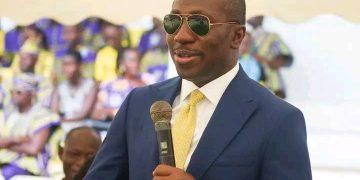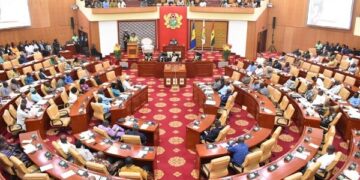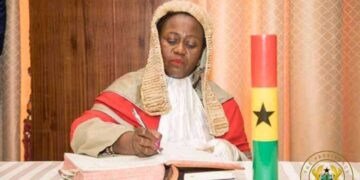A man goes to court without pleading how the verdict has been stolen.
He files on his behalf three witness statements that did not state how the verdict was stolen.
At the close of his case, his opponents ask the court to give JUDGMENT based on the only evidence before the court, which is only that of his witnesses.
Instead of being happy that his opponents have made things easier for him, he protests insisting that his opponents put in their witnesses.
He comes to Court under Article 64(1) of the 1992 Constitution, but when Their Lordships apply the spirit and letter of Article 64(3) to determine and dismiss motions that do not meet the standards of the law he runs from the honourable court to the court of public opinion.
He says the court of public opinion demands that his case should be re-opened.
By the way, what’s the nature of this public opinion and how is it gauged?
Someone should tell me since when was justice dispensed in Ghana based on public opinion?
Below is one of the decided cases on how justice is dispensed in Ghana:
BONSU v BONSU, Taylor J (as he then was):
“There is always a real danger when vague ideas of justice undefined by statute or case law are propounded and brandished like a cure-all magic wand – without appreciating the actual position, namely, that the true legal notions of justice are circumscribed by the demands of the law and that in this court we administer justice according to three and only three yardsticks: statute, case law or our well-defined practice.”
I end with Psalm 109:28; “While they curse, may you bless; may those who attack me be put to shame.”
Source: Kwaku Antwi-Boasiako




















































































